I found the result of double/double is not correct:
double i = 3.3, j = 1.1;
int k = i/j;
printf("%d\n", k);
the result is 2, why??
Debugging:

But:
float i = 3.3, j = 1.1;
int k = (int)(i/j);
printf("%d\n", k);
Debugging:

I found the result of double/double is not correct:
double i = 3.3, j = 1.1;
int k = i/j;
printf("%d\n", k);
the result is 2, why??
Debugging:

But:
float i = 3.3, j = 1.1;
int k = (int)(i/j);
printf("%d\n", k);
Debugging:

3.2999 / 1.10 gives 2.99 and something which on converting to integer yields the output 2
A double cannot represent 3.3, even if you write 3.3 in your code the double will store it as 3.2999999999999998. (It cannot store 1.1 exact either, it will be 1.1000000000000001)
So i/j is performing 3.2999999999999998/1.1000000000000001 whose result will be stored as 2.9999999999999996
converting a double to an int truncates the value, it does not round it to the nearest integer, so 2.9999999999999996 will be converted to 2
This applies just as well to C with IEEE 754 floating points, and have many further resources.
double i = 3.3, j = 1.1;
int k = i/j;
because of the way decimal numbers are represented in memory, the result of i/j is actually 2.999999...the compiler will convert the resutl i/j from double to int because k is a int. And that's how you end up with a result of 2
As you know that 3.3 can't be represented in binary format correctly and same for 1.1, evaluating k = i/j results in
3.2999999999999998 / 1.1000000000000001 < 3
Assigning this to int type k truncate it to 2.